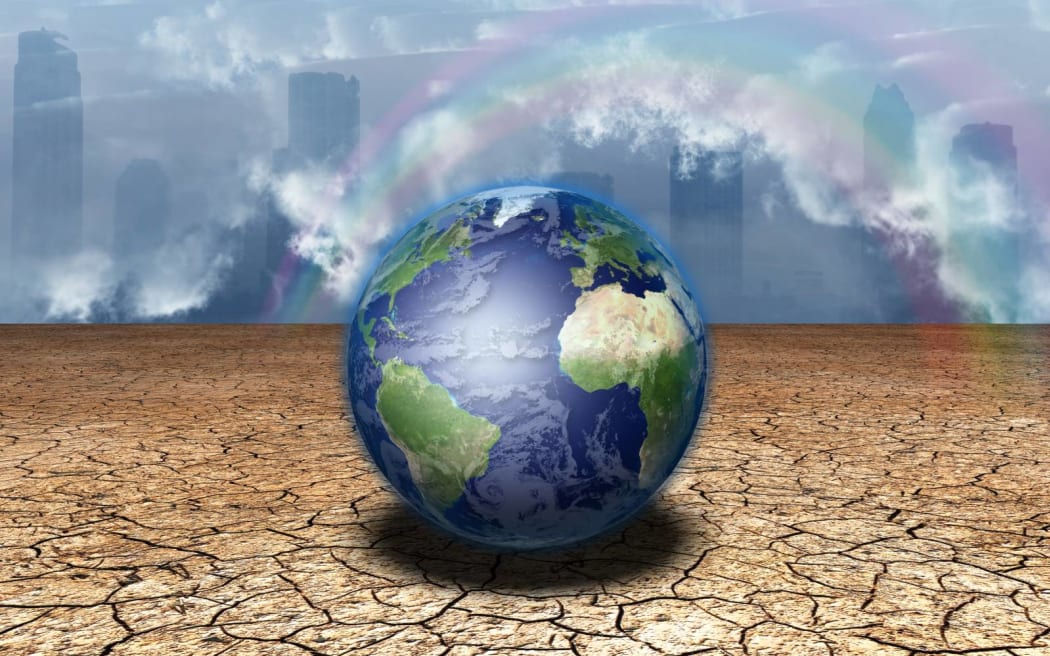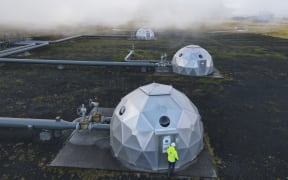
According to a global Ipsos survey, just 18 percent of people say climate change is a top-three concern. Photo: Bruce Rolff
More voters are heading to the polls in 2024 than in any year before, and the potential impact for climate change is significant.
Four billion people across more than 65 countries are eligible to take part in national elections this year.
It is not just the US people are watching. Elections are taking place in several influential countries, from the UK to India, Mexico, South Korea and the European Union.
Collectively, these nations and the EU are responsible for more than 40 percent of global greenhouse gas emissions.
But according to a global Ipsos survey, just 18 percent of people say climate change is a top-three concern. It sits well behind the most pressing issue - inflation.
So what kind of an impact can we expect these elections to have on climate policy?
Darrell Bricker, head of public affairs at global market research firm Ipsos, says global progress is entirely dependent on their outcomes.
"There's no global decision-making body that has any legislative effect on anything that any country does," he explained. "So anything that happens relative to climate policy has to happen at the local, country level."
Even so, he was not convinced it would be a high priority for voters. Ipsos tracks about 20 voter issues across 30 countries on a monthly basis.
"Climate usually sits around 10th on the list," he said. "There's a whole series of other things that people are much more concerned about - most of them related to costs of living."
That worried Romany Webb, deputy director of Columbia University's Sabin Center for Climate Change Law. She was watching the elections closely.
"The outcomes could have huge implications for climate change mitigation, meaning how quickly and effectively we reduce our greenhouse gas emissions, as well for climate adaptation, which is how well we prepare for the climate impacts that are already occurring."
She was especially concerned with the major elephant in the room.
"The outcome of the US election will have huge climate implications, both in the US and around the world," she said, referencing Donald Trump's removal of the US from the Paris Agreement during his last presidency.
According to Webb, a Trump re-election would be detrimental to global progress. Most observers would expect to see a repeat of the last time, with hundreds of environmental regulations rolled back within the US. Even worse she said was his administration's attacks on science, which transcended international borders.
"I was actually at the [annual Conference of the Parties] in Morocco when President Trump was elected. A few days later there were reports of Trump supporters outside the venue burning copies of the Paris Agreement."
For Darrell Bricker, the prospect of another Trump presidency has him watching the European Parliamentary election with interest.
"This is one of the first times in which Europeans have to think as Europeans. With Donald Trump potentially in charge of the US again, we will be relying on the countries in Europe."
In the UK, Grantham Institute analyst Leo Mercer said the issue of climate change was becoming increasingly politicised.
"The Labour Party and Conservative Party have diverged sharply in recent months with their approaches to climate change.
"Conservative Party leader Rishi Sunak has signalled a reset on net zero and he has started to push back on a number of targets to phase out polluting activities, such as petrol and diesel cars."
According to Mercer, it is encouraging that both major parties continue to affirm their commitment to the net zero goal. But as the cuts started hitting sectors like agriculture and transport, small factions in both parties were beginning to push back.
"They're not denying climate science anymore, that's not in vogue. But now they're saying that net zero is too expensive, or too much of a burden on society."
In less developed countries like India, the Grantham Institute's Sangeeth Selvaraju said the ability to take climate action often depended more on other countries' elections than their own.
"A lot of work on climate change requires multilateralism. So whichever leader is in power in India needs to engage with the leaders of the EU and US to get financing. Without it, India won't be able to meet its climate targets."





